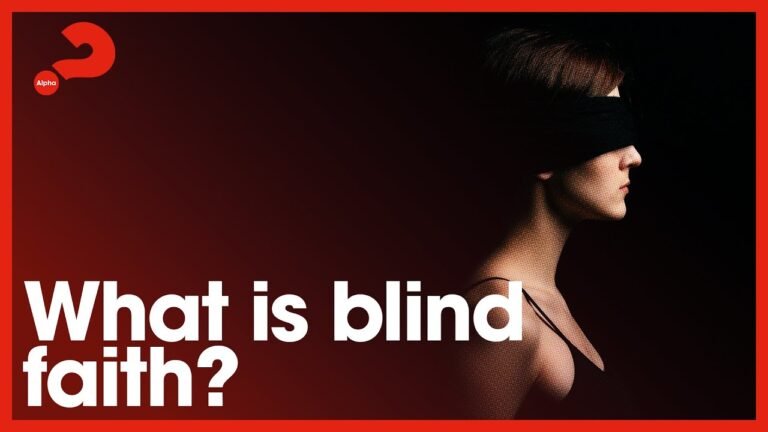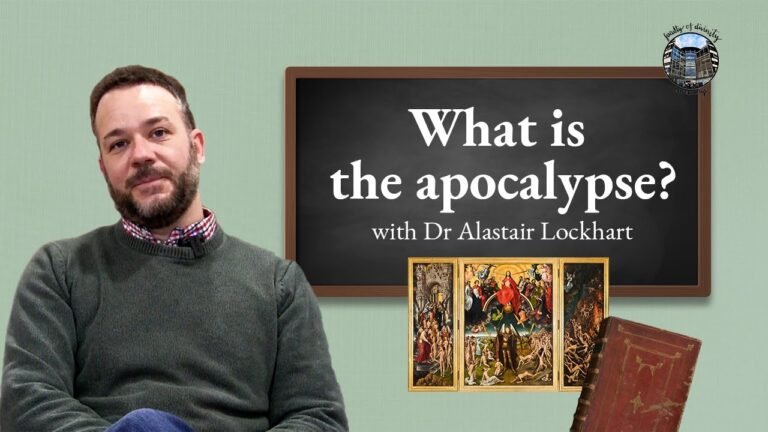Understanding Blind Faith: Definition and Implications
Blind faith is a concept that often stirs deep emotional and philosophical discussions, defined as unwavering belief in something without critical examination or evidence. This phenomenon can be observed in various aspects of life, from religion to personal relationships and even societal norms. While some view blind faith as a source of strength and comfort, others caution against its potential to lead to misguided actions and decisions. Understanding what blind faith truly entails is essential for navigating the complexities of belief and skepticism in our modern world.
What does blind faith truly mean?
Blind faith refers to believing in something without questioning or seeking evidence, often relying solely on trust or conviction rather than rational thought.
What is the meaning of blind faith?
Blind faith represents a form of belief that exists without the necessity for evidence or rational thought. It is the acceptance of ideas, doctrines, or principles solely on the basis of trust or conviction, often leading individuals to embrace concepts that may not stand up to scrutiny. This type of faith can be found in various aspects of life, from religion to personal ideologies, where followers may overlook contradictions or lack of proof.
The allure of blind faith lies in its simplicity; it offers comfort and certainty in a complex world. By surrendering to beliefs without questioning their validity, individuals may experience a sense of belonging or purpose. However, this can also foster a dangerous mindset, as it encourages adherence to potentially flawed ideas that can be misleading or harmful.
In contrast to blind faith, rational belief encourages critical thinking and a reliance on evidence. While faith can inspire and motivate, it is essential to balance it with reason and inquiry. Understanding the difference can empower individuals to navigate their beliefs more thoughtfully, ensuring that they do not fall prey to the pitfalls of unquestioning acceptance.
What is the Bible’s perspective on blind faith?
The concept of blind faith is intricately woven into the fabric of biblical teachings, as illustrated in the words of Jesus: “Blessed are those who have not seen and yet have believed” (John 20:29). This verse highlights the value placed on faith that transcends physical evidence, suggesting that true belief can exist even in the absence of tangible proof. It invites individuals to embrace a faith that relies on trust and conviction, rather than solely on observable signs.
However, this notion does not imply that faith should be devoid of reason or inquiry. Rather, it encourages a deeper exploration of belief that allows for personal experiences and insights to shape one’s understanding of the divine. While some may interpret Jesus’ message as a call to blind belief, it can also be seen as an invitation to cultivate a faith that, while not reliant on sight, is enriched through spiritual growth and reflection.
Is blind faith beneficial or detrimental?
Blind faith can lead individuals down a perilous path, resulting in misguided beliefs and detrimental choices. When people accept ideas without question, they risk adopting harmful attitudes that can influence their decisions and actions negatively. This lack of critical thinking can have far-reaching consequences, not only for the individual but also for society as a whole.
In today’s digital age, the prevalence of social media amplifies the risks associated with blind faith. The rapid spread of misinformation and fake news creates an environment where false beliefs can flourish, often without scrutiny. As many individuals gravitate towards sensationalized content, the potential for misunderstanding and misjudgment increases, making it essential to foster a culture of questioning and critical evaluation in order to combat the dangers of blind faith.
Exploring the Roots of Unquestioning Belief
Belief often takes root in the fertile soil of tradition, culture, and personal experience, creating a landscape where questions are overshadowed by acceptance. Many individuals grow up absorbing the values and convictions of their families and communities, leading to a sense of identity intertwined with these beliefs. This deep-seated connection can foster a comforting sense of belonging, yet it may also inhibit critical thinking and self-exploration. As these individuals navigate their lives, they may find themselves adhering to doctrines without scrutinizing their validity, creating a cycle of unquestioning faith that can be difficult to break.
However, the journey towards understanding can illuminate the blind spots of such unwavering faith. By encouraging curiosity and open dialogue, individuals can begin to peel back the layers of inherited beliefs, allowing for personal growth and a more nuanced worldview. This exploration often reveals the complexities of belief systems, inviting individuals to reassess and redefine their convictions based on reason and experience rather than mere acceptance. In doing so, they not only enrich their own lives but also contribute to a broader discourse that values inquiry over dogma, fostering a culture of thoughtful reflection and understanding.
The Consequences of Faith Without Evidence
In a world increasingly driven by empirical evidence and rational thought, the concept of faith without evidence poses a significant challenge. Belief systems founded solely on faith can lead individuals to make decisions that are not grounded in reality, potentially resulting in harmful consequences. This disconnect between belief and evidence often fosters a sense of certainty that can cloud judgment, steering individuals away from critical thinking and rational discourse.
When faith becomes a substitute for evidence, it can create ideological divides, leading to conflicts and misunderstandings among communities. This phenomenon is particularly evident in areas such as politics and science, where divergent beliefs can hinder progress and collaboration. As groups become entrenched in their convictions, they may disregard factual information, perpetuating cycles of misinformation and division that stifle constructive dialogue.
Ultimately, the consequences of faith without evidence extend beyond individual beliefs, impacting society as a whole. By prioritizing faith over empirical understanding, we risk undermining the principles of inquiry and skepticism that drive advancements in knowledge and technology. Encouraging a culture that values evidence-based reasoning, while respecting diverse beliefs, is essential for fostering a harmonious society that can navigate the complexities of modern life.
Navigating the Fine Line Between Trust and naivety
In an increasingly complex world, the ability to discern trust from naivety has become paramount. Trust is the foundation of healthy relationships, both personal and professional, fostering collaboration and mutual respect. However, when trust morphs into blind faith, it can lead to vulnerability and exploitation. Recognizing the subtle boundary between these two states is essential for navigating social dynamics effectively.
Cultivating discernment involves questioning motives and seeking transparency. It’s imprescindible to evaluate the credibility of information and the intentions behind actions, ensuring that trust is built on a solid foundation rather than mere assumption. Engaging in open dialogues and encouraging diverse perspectives can help illuminate potential biases and blind spots, reinforcing the importance of critical thinking in our interactions.
Ultimately, achieving a balance between trust and skepticism empowers individuals to forge meaningful connections while safeguarding their interests. By embracing a mindset that values both openness and vigilance, we can foster relationships that are resilient and authentic. This nuanced approach not only enhances personal growth but also strengthens communities, creating an environment where trust thrives without falling prey to the pitfalls of naivety.
Blind Faith: Its Role in Society and Personal Growth
Blind faith often serves as a double-edged sword in both society and personal development. On one hand, it can foster unity and a sense of belonging among individuals who share common beliefs, providing comfort in times of uncertainty. This unwavering trust can propel communities toward collective goals, whether they be spiritual, social, or political. However, when taken to extremes, blind faith can lead to dogmatism, stifling critical thinking and discouraging progress. It is essential to strike a balance between belief and skepticism, ensuring that faith does not overshadow reason.
On a personal level, blind faith can act as a powerful catalyst for growth, helping individuals navigate life’s challenges with resilience. When faced with adversity, having faith in oneself or a higher purpose can provide the strength to persevere. Yet, personal growth flourishes best when faith is accompanied by reflection and inquiry. By questioning our beliefs and understanding their origins, we can cultivate a deeper, more nuanced perspective that enhances both our personal journeys and our contributions to society. Ultimately, the interplay between faith and critical thinking can lead to a more enlightened, cohesive existence.
Blind faith often leads individuals to follow beliefs without questioning their validity, which can be both empowering and limiting. While it can provide comfort and a sense of belonging, it also risks fostering dogmatism and hindering critical thinking. Embracing a balanced approach that encourages inquiry alongside faith can cultivate a deeper understanding and a more resilient belief system, ultimately enriching both personal growth and communal harmony.







